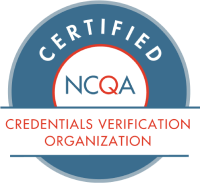Ask any strategic leader at a health plan about their top priorities, and you’ll likely hear a lot about member experience, cost management, and quality of care. One of the most powerful tools a health plan has to impact these areas is its provider network—yet both the network and the role of the Chief Network Officer (CNO) are often underutilized.
Our recent Customer Advisory Board event highlighted that the importance of the CNO role is on the rise. Elevating network leadership to the top levels of the company is not merely a trend—it’s a necessity. When the CNO reports directly to the CEO, network strategy becomes a core driver of all facets of business performance.
The road ahead is all about understanding how this role is evolving, why it matters now more than ever, and how leveraging cutting-edge technology can empower CNOs to future-proof provider networks.
The Evolving Role of the CNO and the Strategic Value of Provider Networks
At many health plans, designing and building networks can be seen as a “check the box” activity to meet compliance objectives—and the work associated with it is overwhelmingly operational and administrative.
In this race to achieve compliance, it can be easy to forget that the provider network is essentially the product that members need their health plan to deliver.
We’ve interviewed hundreds of members, and when we ask them—“what do you need from your health plan?”—the answer “access to a good network” is the second most popular answer, right after “covering the cost of care.” A well-managed network influences everything from care quality and member satisfaction to competitive differentiation and topline revenue.
About two-thirds (roughly 60-70%) of the Consumer Assessment of Healthcare Providers and Systems (CAHPS) survey focuses on members’ interactions with providers. This includes measures related to getting needed care, doctor communication, care coordination, and access to specialists. Since provider interactions heavily influence CAHPS scores, health plans that optimize their provider networks can directly improve their member experience ratings and topline revenue.
This shift in thinking means that the CNO can impact all business KPIs—operational, financial, and commercial. At high-performing health plans, they lead cross-functional collaboration between operations, strategy, and finance teams, ensuring that network initiatives align with broader organizational goals.
The CNO’s ability to bridge the gap between network management and business strategy is what turns a network into a dynamic, competitive asset. It’s about moving beyond maintaining the status quo and instead using the network as a lever to keep pace with change and improve business outcomes.
The CNO as a Bridge Between Strategy and Execution
When strategy and operations exist in silos, organizations risk inefficiencies, missed opportunities, and subpar outcomes. The CNO plays a critical role in bridging these gaps, turning strategic plans into actionable initiatives that drive real-world impact.
Effective CNOs understand that breaking down silos is not just about enhancing internal alignment but about building a foundation for long-term success. When network strategies move seamlessly from vision to execution, health plans can achieve greater adaptability and resilience.
By building these strong bridges for seamless execution, the CNO sets the stage for future-proofing provider networks, ensuring health plans can act on data, respond to regulatory changes, and meet evolving member and provider needs.
For more on how data, automation, and lifecycle precision can future-proof your network, check out our recent insights on How to Future-Proof Your Provider Network.
The Strategic Opportunity Ahead
Empowering the Chief Network Officer as a strategic leader, health plans can transform their networks into powerful engines of quality care and business success. Health plans that invest in strong, visionary CNO leadership are not just preparing for the future, they’re shaping it.
Now is the time to make the network a cornerstone of business performance and ensure that healthcare networks are dynamic, data-driven, and precisely tuned to meet members’ needs to drive lasting impact.
How is your organization empowering its CNO to drive transformation? Explore how Andros Arc can help future-proof your provider network and position your health plan for long-term success.



